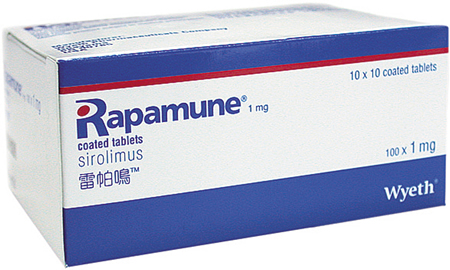Probably most of you have heard of the French paradox.
The idea is that the French eat all kinds of saturated fat in their food, yet have a low rate of heart disease. Second lowest in Europe actually, after Switzerland, and the Swiss eat even more saturated fat than the French.
If you’ve been following my writing for a while, you know what I think about the French paradox: it’s B.S.
You don’t need to explain low rates of heart disease among the French because saturated fat doesn’t cause heart disease.
So, the fact that the French drink wine, while probably relevant to their low heart disease rates, doesn’t counter their fat intake, because it doesn’t need countering.
The amount of resveratrol in their wine is too low to matter as well.
Anyway, there is another paradox which, well, when you look at it, is less of a paradox than you might think.
That’s the Israeli paradox.
Here it is:
- Israel has one of the highest consumption rates of omega-6 fatty acids in the world. These fatty acids are abundant in vegetable (seed) oils, and the Israelis consume a lot of it.
- Vegetable (seed) oils are good for you – allegedly.
- The Israelis suffer from a high rate of heart disease, hypertension, type 2 diabetes, and cancer.
That’s a real head scratcher, according to mainstream health authorities, who tout seed oils as being uber-healthy.
But the paradox disappears when you just forget the idea that seed oils are healthy.
Of course the Israelis have high rates of chronic disease. If they used animal fats and/or olive oil in place of seed oils, they would be a whole hell of a lot healthier. (Yam, Daniel, Abraham Eliraz, and Elliot M. Berry. “Diet and disease–the Israeli paradox: possible dangers of a high omega-6 polyunsaturated fatty acid diet.” Israel Journal of Medical Sciences 32.11 (1996): 1134-1143.)
To quote the authors of the cited article, “Thus, rather than being beneficial, high omega-6 PUFA diets may have some long-term side effects, within the cluster of hyperinsulinemia, atherosclerosis and tumorigenesis.”
Seed oils can give you heart disease, cancer, and diabetes.
When does anyone ever say that?
There’s only a few of us out here saying it, like voices in the wilderness.
Vegetable oils, which are better termed industrial seed oils, are made by modern manufacturing techniques from seeds that generally contain little oil.
Soybean, corn, safflower, sunflower, cottonseed, and others are all industrial seed oils.
And you should avoid them like the plague.
Seed oils like these are also implicated in obesity.
So, if you’re trying to lose some body fat, ditching seed oils is a great thing to do.
Unfortunately, the modern food supply is drenched in seed oils.
They’re in virtually all ultra-processed foods – the packaged foods in boxes and bags that you can buy in the middle aisles of the supermarket. The stuff that Big Food manufactures.
Virtually all restaurants cook with them too.
What to do about it?










16 Comments
(Off-topic)
Interesting short article regarding food-/health-politics and influence of CocaCola in contemporary China.
The Chinese are politically sovereign and perfectly able to make their own caffeinated sugar water; yet the Chinese rulers allowed CocaCola to expand.
Might there be some political advantage of having your population “sugared”?
https://www.caixinglobal.com/2019-01-11/how-coca-cola-put-its-own-health-first-101369160.html
Mangan,
I have been following your advice now for several months. I have ditched all products that have industrial oils and only eat or cook with butter and the following oils: olive, coconut, avocado, and palm. My only problem now is when I go out to eat, which is not often. Thanks for work, and I tell people all the time about your website.
Thanks, Conan. Going out to eat is a problem for sure. I had to stop ordering a favorite dish (fajitas) at a restaurant I frequent because i realized it was literally soaked in seed oil.
Don’t sweat the small stuff. Don’t confuse being a purist with making an actual difference.
The First Law of Toxicology is: “The dose makes the poison.” It doesn’t matter if you eat crap food once in awhile. You even said you don’t eat out often, nor do I. Since it’s infrequent, I eat what I want in regards to ingredients, including oil.
What counts is longer term consumption. As evidenced by the Israeli Paradox.
Does the Israeli Paradox mean Jews aren’t really all that smart after all? =)
Jews are the happiest and longest lived demographic surveyed by the Pew Institute, thanks for asking
Neither of those are consistent with stupidity
Israel ranks 8th on the list of healthiest countries, ahead of the United States
Israeli researchers discovered that the mysterious global bee die-off is due to environmental changes that have changed their nutritional intake to a very high Omega 6/3 ratio
I do hope that the information on oils makes its way into the Israeli public health mechanisms
The reason that Israel uses a high amount of seed oil is obvious. Kosher guidelines do not allow for mixing meat products with dairy. Therefore, if a bakery or a processed food company or even a home baker wants to make a product that can be eaten with either a meat or dairy meal, they’ll turn to a vegetable oil instead of butter or schmaltz. Those were the traditionally utilized fats in kosher homes before seed oils came along. Unfortunately, just like the rest of the world, Israel has been fooled into thinking these new oils are healthy, and dietary laws mean that they’re consumed more than in many other cultures. Nobody thinks that a cake or pastry made with vegetable oil or margarine is tastier than one made with butter, but they’ll eat them with a meat meal because if they keep kosher they’ll prefer to have that than no dessert at all.
Hi Dennis, follower from Canada. Today (Jan 22), our government released new food guidelines. Thought you might want to check them out.
https://food-guide.canada.ca/en/guidelines/section-1-foundation-for-healthy-eating/
1. Push for reduction in saturated fats in favor of mono and polyunsaturated fats. (Canada grows Canola/rapeseed and lots of other veg oils but I stick to coconut, butter, olive and avocado oils).
I found this claim disturbing: “Replacing saturated fat with polyunsaturated fat can also lower the risk of cardiovascular disease.” This is right out of the AHA’s handbook and has been convincingly debunked on your blog and elsewhere.
2. Reduction in dairy recommendation.
3. Attack on “full fat” in general “…Protein foods include legumes, nuts, seeds, tofu, fortified soy beverage, fish, shellfish, eggs, poultry, lean red meat including wild game, lower fat milk, lower fat yogurts, lower fat kefir, and cheeses lower in fat and sodium.”
4. Push for grains as a daily diet cornerstone. (My main concern is inflammation/Alzheimer’s risk with grains).
5. Push for soy protein. (GMOs, Roundup and anti-nutrient effects of soy).
I’m also concerned with the declaration we should eat more fruit and put more sugar into our systems.
Hi Paul, thanks. The Canadian guidelines are more of the same failed policies that brought us the obesity epidemic, and I agree, the line about polyunsaturated fats is disturbing. The Seventh day Adventists church, which pushes vegetarianism, has hugely influenced dietitians and the field of nutrition.
What is true in Israel is also true in India, from what I’ve read. And the residents of the latter country are often vegetarian, no less. And, for even more granularity, heart disease is more rampant in the vegetarian areas than the historically pastoral omnivorous areas.
That’s what I’ve observed on the intertubes, so I’m sure it’s true.
Hi Mangan,
what’s your opinion on:
– rapeseed oil?
– colesterol?
Rapeseed
Cholesterol
“What to do about it?” — start a chain of restaurants where everything is fried the old-fashioned way — in animal fat!
It’s been done!
McDonald’s French fries were cooked in beef tallow, and I’m sure that was true across America in all restaurants. Then came the sat fat scare, plus Ralph Nader’s Center for Science in the Public Interest meddling, plus some Indian vegetarians suing Mickey D for secretly using animal fat, and the handwriting was on the wall.
Ever since, the French fry industry has tried and tried to make them as good with “vegetable” oil as with tallow. They try different blends, they coat the fries, but never as good.
There was a guy several years ago that does a podcast and blog, and he brought this matter up. He cooked fries in tallow and had young ‘uns who had never tasted such things try them out. (Shifting dialect,) “Like, ohmigod, these are the best fries I’ve ever had!”
I can remember when the potatoes were peeled and pressed into raw fries right in the stores. Like, ohmigod, right in front of your eyes. Fresh. I think they also soaked them for awhile in water to remove the surface starch. It’s easy to see why such processing went centralized and frozen.
Hi Mangan, is palm oil also extracted from its seeds? Is it an industrial seed oil?
Heart disease (coronary) that is blamed on fat is really stress caused.
Research : Rosetto effect. 1961 a village of Italian immigrants. miners. Research found them to be – then, not now – to be healthiest for coronary hearth disease.
https://en.wikipedia.org/wiki/Roseto_effect
The Mystery of the Rosetan People : https://www.huffpost.com/entry/the-mystery-of-the-roseta_b_73260